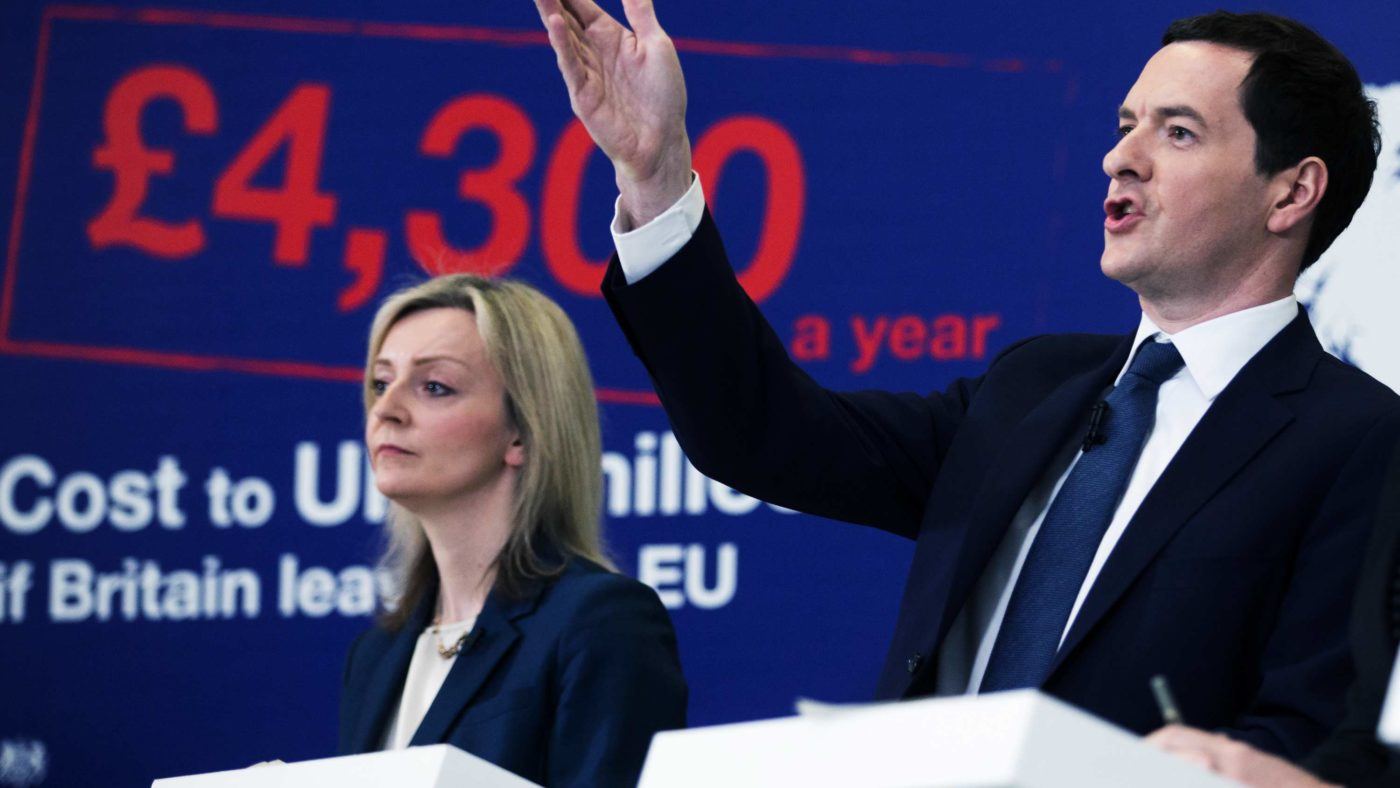Change Britain has done us all a favour by checking those cod economic predictions we were walloped with before the Brexit referendum. Of the 19 economic disasters that were to be visited upon us according to Project Fear only two were in fact true.
This is a level of verity unusual even in politics. The reason that most of them did not come to pass is twofold. First is, of course, the fact that most of the predictions were just political chicanery; scare the bejabbers out of the citizenry to get them to vote the right way. Well, that didn’t work, did it? The second reason disaster did not strike is the markets worked in the way they are supposed to.
The full report is here and, of course, it’s possible to quibble with one or more of their declarations. The important points, though, are about those predictions of immediate economic disaster that would be visited upon us if we were to have the temerity to let go of Nanny Europa. Quite clearly we didn’t go into immediate economic recession – contrary to the prediction of four quarters of negative growth.
Unemployment hasn’t soared by 500,000; it has actually fallen. We haven’t all put our wallets under the mattress and refused to spend, the inflation bounce hasn’t been what was predicted and we can’t see any fall in foreign investment either.
As I say, the reason these things haven’t happened is because markets do in fact work. We decided that we would indeed prefer to leave and that does imply a certain, possibly significant, change to our terms of trade. We will find it more difficult to export to those European markets for example. Maybe we’ll get a trade deal, maybe we won’t, but it is very definitely going to be a little more difficult. At which point markets react. And the usual response to a change in an economy’s terms of trade is a change in the exchange rate.
Which is, of course, what happened. The pound fell against the euro and other currencies. And that is why those terrors have not come to pass – precisely because the pound fell. For what happens then is that our exports become cheaper and thus they buy more of them. Our own imports from them become more expensive so we buy less of them. Further, we substitute away from those imports in favour of domestic production as their relative prices change. This all acts as a stimulus to the domestic economy. Markets do indeed work, change one thing and others then fall into place.
All of which is what made those original predictions, as some of us were saying at the time, so enraging. They weren’t even internally consistent with themselves. If we are to have export difficulties, which we are to some extent, then quite clearly the pound will fall in value. At which point we’re simply not going to have a four quarter recession and rising unemployment.
All of which leaves us with an interesting larger point. We’ve this great war on fake news going on, one which we are all urged to subscribe to.
If we all really do sign up and continue to excoriate the fakery then it’s going to make normal politics really rather difficult, isn’t it? As with those predictions of imminent disaster if we decided that we’d prefer to not be ruled from Brussels, all too much of it is codswallop.


